Diet Coke Nutrition Facts, diet Coke it’s the iconic zero-calorie soda millions reach for when they want the taste of cola without the calories. Diet Coke has become a staple in soft drinks, from offices to restaurants to home refrigerators. But what exactly goes into that crisp, fizzy drink? Is it a healthier choice, or are there hidden drawbacks in the nutritional profile? Let’s look at Diet Coke nutrition facts and ingredients and what they mean for your health. Whether you’re a daily Diet Coke fan or just curious about what’s in your soda, this guide provides the whole picture.
Table of Contents
Breaking Down Diet Coke’s Nutrition Facts

Let’s start with the basics to understand Diet Coke’s nutritional impact. Diet Coke nutrition facts is marketed as a zero-calorie, sugar-free alternative to regular Coke, typically having around 140 calories and 39 grams of sugar per 12-ounce can. Here’s what a standard 12-ounce can of Diet Coke provides:
Nutrient Amount per 12 fl. oz. (355 ml) % Daily Value*
Calories 0 0%
Total Fat 0 g 0%
Sodium 40 mg 2%
Total Carbs 0 g 0%
Sugars 0 g 0%
Protein 0 g 0%
Key Ingredients in Diet Coke
Diet Coke nutrition Facts contains several ingredients designed to create a soda that mimics the taste of regular cola without the sugar or calories. Here’s a rundown of the main ingredients and their purpose:
Carbonated Water
Carbonated water is water that has been infused with carbon dioxide gas, creating bubbles. This is what gives Diet Coke its signature fizz. Carbonated water is generally safe to consume and is the primary ingredient in nearly all soft drinks.
Aspartame
Aspartame is a low-calorie sweetener, roughly 200 times sweeter than sugar. It is used in Diet Coke Nutrition Facts to provide sweetness without the calories. While the FDA and other regulatory agencies have deemed aspartame safe for general consumption, some people may be sensitive to it, and its long-term effects are still debated.
Phosphoric Acid
Phosphoric acid is added for flavor, giving Diet Coke Nutrition Facts its tangy, acidic taste. However, phosphoric acid has been associated with potential health concerns, especially when consumed in large amounts, as it can impact bone density and kidney health over time.
Natural Flavors
Natural flavors are included to mimic the taste of traditional cola. The exact composition of these flavors is proprietary, meaning it’s a closely guarded secret by Coca-Cola. While “natural flavors” sound harmless, they can come from various sources and may sometimes include chemicals derived from natural ingredients.
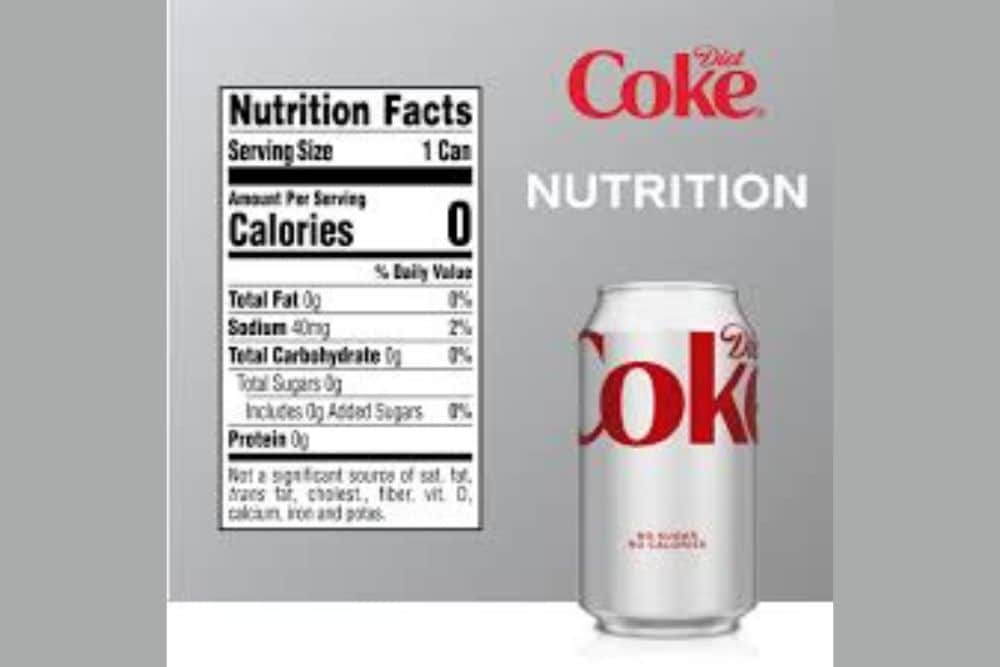
Caffeine
Caffeine provides a slight energy boost, so many people choose Diet Coke Nutritrion Facts as a mid-day pick-me-up. However, too much caffeine can lead to side effects like jitters, anxiety, and disrupted sleep.
Citric Acid
Citric acid is another acidifying agent that adds tartness and preserves the soda. While safe in moderate amounts, high citric acid consumption can contribute to dental erosion over time.
Health Implications of Diet Coke
While Diet Coke Nutrition Facts may seem harmless to sugary sodas, several health considerations must be remembered. Here’s a breakdown of some of the potential impacts on health:
Weight Management and Appetite Control
Since Diet Coke is calorie-free, many assume it can help with weight management. However, some studies suggest that artificial sweeteners may increase cravings for sweet and high-calorie foods, potentially causing people to overeat.
Effect on Blood Sugar and Insulin Response
Unlike sugar, aspartame does not significantly impact blood glucose levels.This makes Diet Coke a preferable choice for those managing diabetes. However, some research suggests that artificial sweeteners could influence insulin response over time, possibly impacting metabolic health.
Bone Health and Phosphoric Acid
Phosphoric acid, one of the ingredients in Diet Coke Nutrition Facts, has been associated with reduced bone mineral density when consumed in large quantities. Regular consumption of colas has been linked to an increased risk of osteoporosis, especially in post-menopausal women.
Dental Health Concerns
Even though it’s sugar-free, Diet Coke is acidic, which can erode tooth enamel over time. Drinking soda through a straw and rinsing with water afterward can help mitigate these effects, but it’s something to be mindful of if you consume Diet Coke frequently.
Caffeine Dependency
Regular consumption of Diet Coke can contribute to caffeine dependency, especially for those sensitive to caffeine. This dependency can lead to withdrawal symptoms like headaches, irritability, and fatigue when caffeine is not consumed.
Gut Health and Artificial Sweeteners
Some research indicates that artificial sweeteners like aspartame can affect the gut microbiome, potentially disrupting beneficial bacteria. A healthy gut microbiome is essential for digestive health, immune function, and mood regulation, so it’s worth considering the potential impact of regular Diet Coke consumption on your gut.
Is Diet Coke a Healthier Alternative?
This question is a common one. While Diet Coke offers a low-calorie, sugar-free alternative to traditional sodas, its health benefits could be more apparent. Diet Coke is free from sugars and calories, making it suitable for people aiming to reduce caloric intake, avoid sugar, or manage conditions like diabetes. However, the artificial sweeteners, acids, and caffeine in Diet Coke can have health implications when consumed regularly or in large amounts.
Alternatives to Diet Coke
If you’re looking to cut back on Diet Coke, there are a few alternative beverages that offer similar benefits without some of the downsides:
Sparkling water with a hint of juice.
Sparkling water is an excellent alternative to Diet Coke for those craving carbonation. Adding a splash of juice or a slice of lemon or lime can provide flavor without the additives found in sodas.
Herbal Teas (Iced or Hot)
Herbal teas are naturally free of caffeine and can be enjoyed either hot or cold. They come in various flavors, so you can switch things up without compromising taste.
Infused Water
Infusing water with fruits like cucumber, berries, or citrus adds flavor without calories or artificial ingredients.
Kombucha
Kombucha is a fermented tea that has a naturally tangy taste and a slight fizz. It’s low in calories and sugar and has probiotics that support gut health. However, it does contain a small amount of caffeine and sugar, so it’s best to consume it in moderation.
Myth vs. Reality: Common Misconceptions About Diet Coke
Myth: Diet Coke Helps with Weight Loss
While Diet Coke is calorie-free, studies suggest it may not necessarily aid in weight loss. Artificial sweeteners can influence hunger and cravings, sometimes increasing food intake.
Myth: Diet Coke Is Safe for Unlimited Consumption
As with most things, moderation is key. Regular consumption of Diet Coke, especially in high amounts, may increase health risks due to its acidity, caffeine, and artificial ingredients.
Myth: Diet Coke Has No Impact on Blood Sugar Levels
Although it doesn’t directly raise blood sugar, artificial sweeteners can impact the body’s insulin response, potentially affecting metabolic health in the long term.
Conclusion
Diet Coke Nutrition Facts can be appealing if you’re looking for a sugar-free, calorie-free soda. However, its ingredients and long-term health impacts require careful consideration. The artificial sweeteners, acids, and caffeine in Diet Coke can have subtle but potentially significant effects on health, especially if consumed in large quantities. If you enjoy Diet Coke occasionally, it can fit into a balanced lifestyle. However, for those who drink it regularly, it may be worth exploring alternatives that provide refreshment without the potential downsides.
Ultimately, the choice is yours, but it’s clear that knowing the nutrition facts behind Diet Coke Nutrition Facts allows you to make an informed decision. Whether you indulge in a can here and there or swap it out for a healthier alternative, understanding the facts can help you make choices that support your overall well-being.





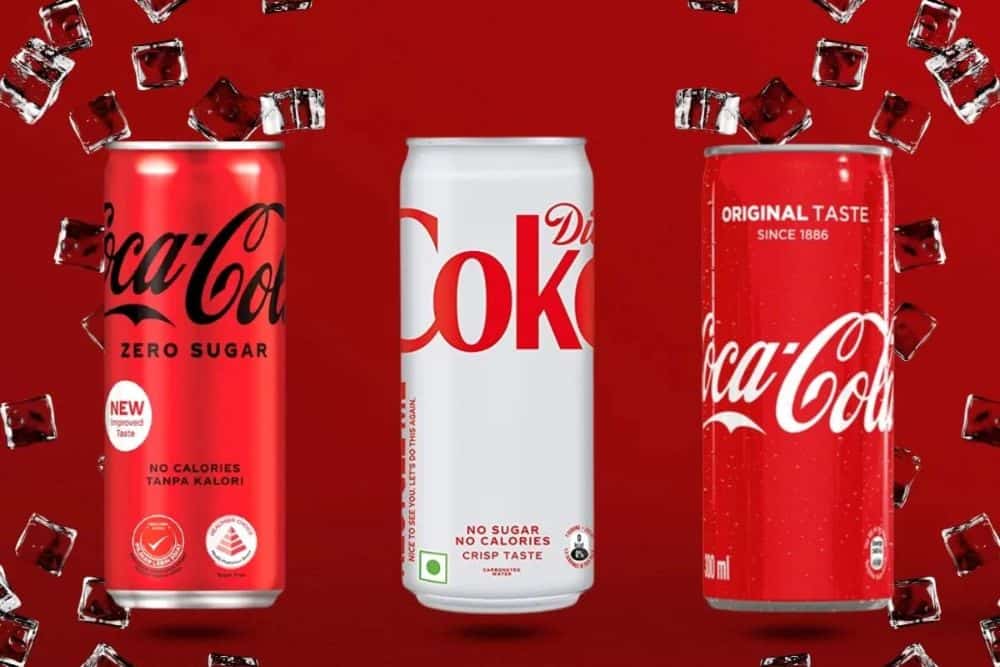


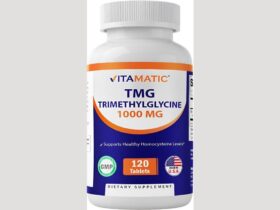
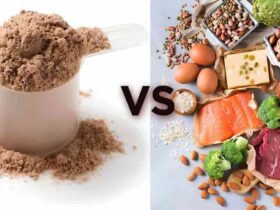
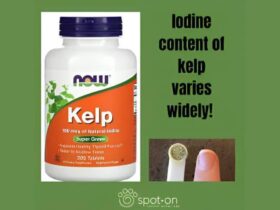


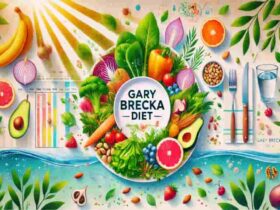

Leave a Reply